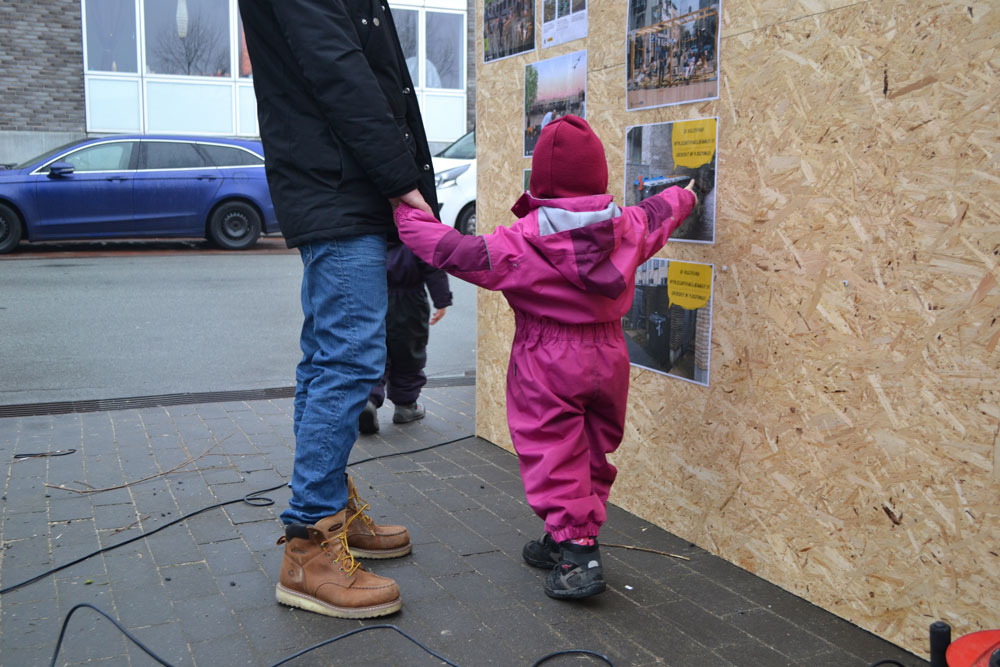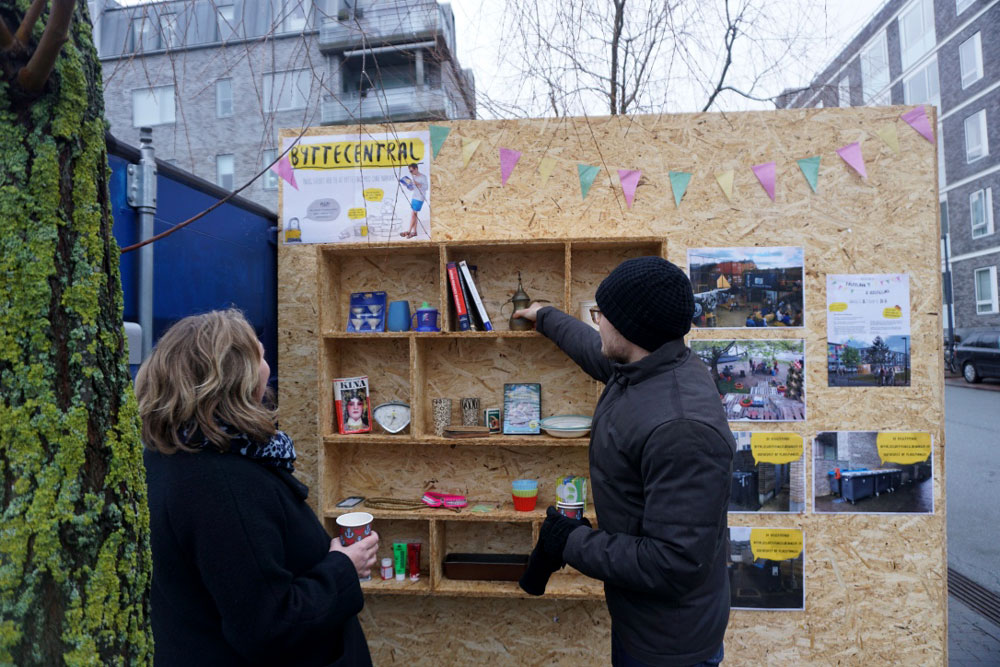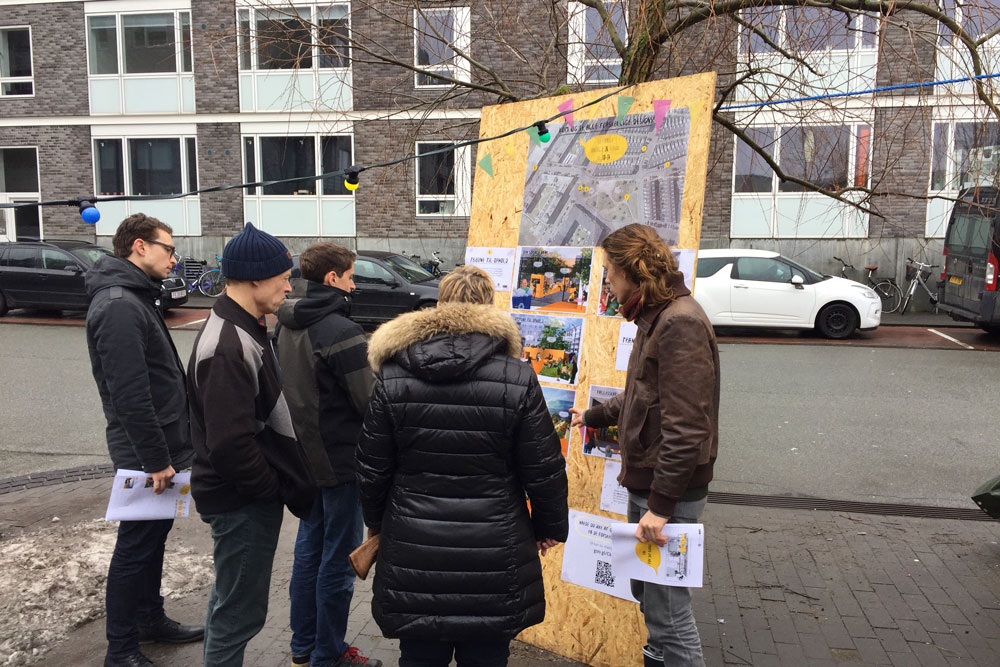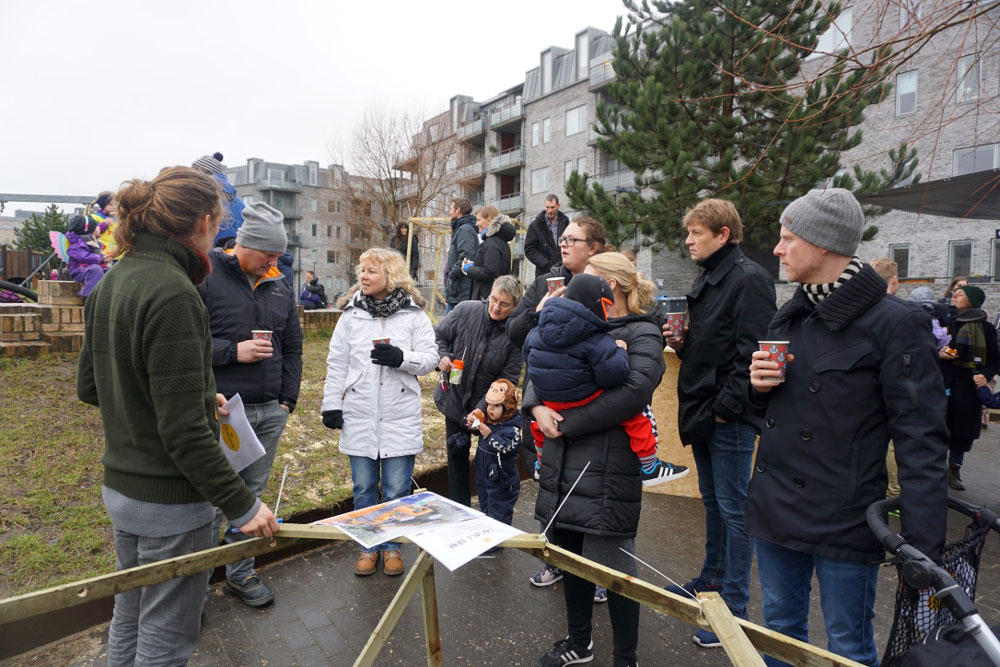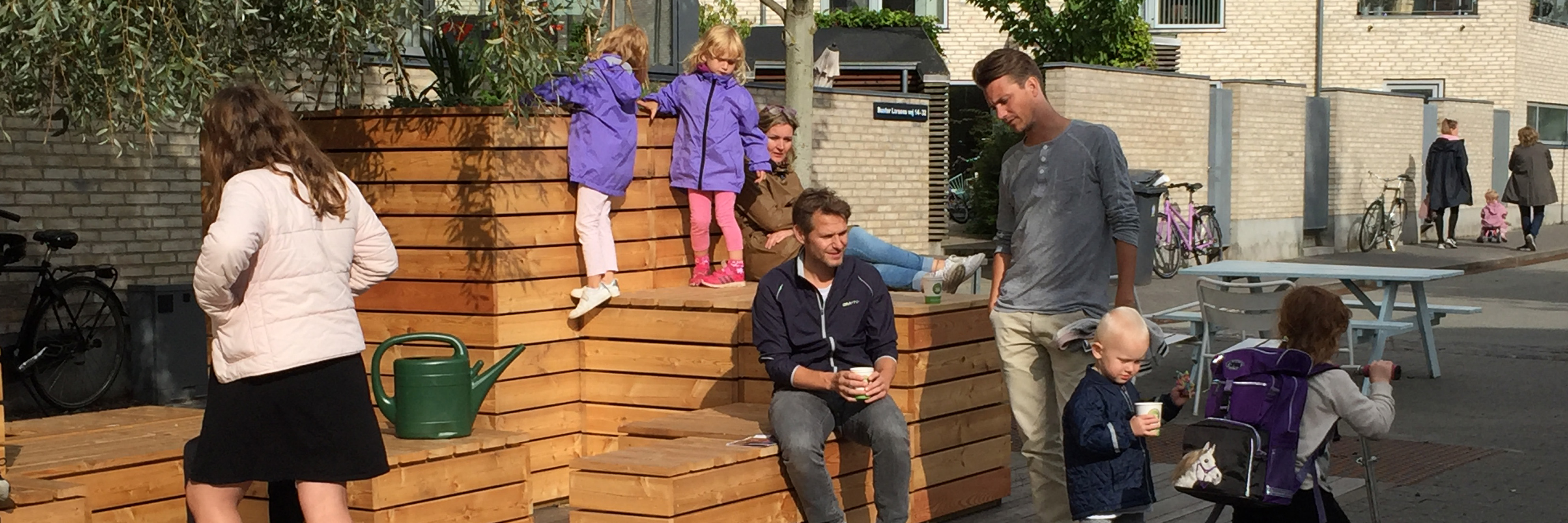
Valby Have
Designing multifunctional waste separation units
Client: Copenhagen Municipality
Our role: Community engagement and consensus building, Prototyping, Designing and Building, Evaluation
Location: Valby Have, Copenhagen, Denmark
Year: Nov 2016 - Dec 2017
Status: Finished
The increase in waste generation in urban settlements requires new sustainable ways of talking about and handling waste. This demands better waste separation methods and a change in the way we approach waste, not as a problem but as a resource. In order to achieve this we need bottom-up solutions, where citizens are a part of the development.
The upper-story houses in Valby Have were in dire need of new recycling bins that enable waste separation in the different compartments, as mandated by the Copenhagen Municipality. The project presented both challenges and opportunities; a challenge because simply increasing the number of recycling bins was spatially not possible, but an opportunity because it would not only respond to the recycling needs but also enhance the public realm of the neighborhood.
In order to create a socially sustainable solution, we collaborated with the residents, including them in the concept-development and design processes. The project started with a workshop using the idea-generating board game arki_nopoly, where we invited people from all ages to share their ideas and visions. Meanwhile the younger residents made small art pieces out of waste - a way to ‘turn trash into treasure’. In addition to the workshop we also used various digital tools, such as our collage app, ArkiCity, and surveys to reach wider audiences. After the event, we analyzed the data, presenting the residents with 7 designs, where they gave feedback, further brainstormed and voted on the design options. To demonstrate the designs more clearly we made different prototypes. The overall purpose of the second event was to test the different ideas before finalizing the design.
The ideas generated formed an idea catalogue, which will hopefully inspire co-designing processes for sustainable waste separation solutions in other areas. The open ended approach helps show that there isn't just a single answer to the question of sustainable waste management - it is an iterative process that requires a collaborative effort.
Share this Project


